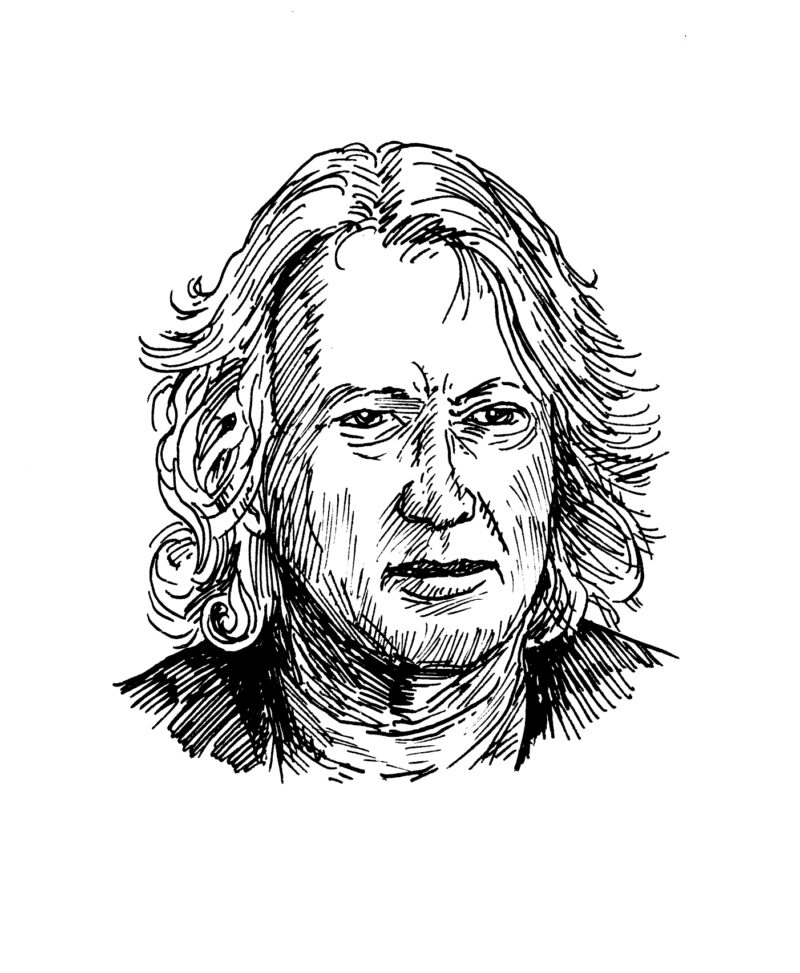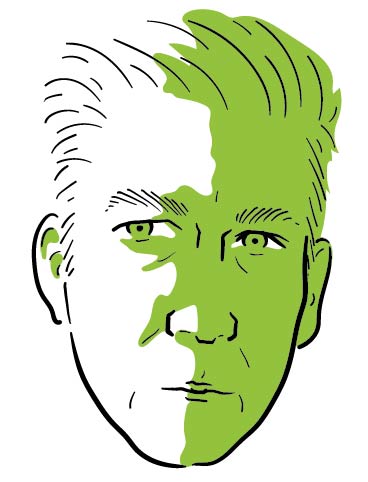Steve Erickson completed the first draft of his latest novel, Shadowbahn, the same month Donald Trump officially announced his presidential candidacy. Immediately after its publication, in 2017, critics hailed it as the first true novel of the new era. It’s a portrait of an America shattered along ideological lines when, quite unexpectedly, the Twin Towers rematerialize in the Badlands. At its heart, though, as he does in all of his novels, Erickson offers a whisper of possible redemption for a nation gone horribly wrong.
Born in Los Angeles in 1950 and raised in a conservative household, Erickson has gone on to be hailed by the likes of Thomas Pynchon, David Foster Wallace, Dana Spiotta, Rick Moody, and many other writers as one of America’s finest living novelists. He’s an unparalleled visionary, blessed with a wholly unpredictable imagination, as well as a prose style that is graceful, audacious, and humane.
Over the past thirty-five years he has published ten novels, including Days between Stations, Amnesiascope, and Zeroville. He’s also authored two nonfiction works and countless magazine articles. He’s received an American Academy of Arts and Letters Award for Literature, a Lannan Literary Award for Lifetime Achievement, and a Guggenheim Fellowship. He was the co-founder and editor of the acclaimed literary journal Black Clock, and today, in addition to being Los Angeles Magazine’s film and television critic, Erickson is a distinguished professor at the University of California, Riverside.
What most readers seem to take away from Erickson’s novels are what he calls the weirdnesses, from unexpected environmental disasters like sandstorms and lakes engulfing Los Angeles, to characters traveling back and forth through time, to a single incongruous frame that seems to appear in every film ever made. It’s easy to latch onto those things, but there’s much more going on. He writes elegantly about human relationships, desires, and conflicts, albeit often set against a background of bizarre and calamitous events. He’s also been consumed with the promise of America—a promise that was betrayed, he notes, the moment the country was founded. His work, both fiction and nonfiction, has furthermore been marked by a certain prescience, as he has written knowingly for decades about environmental and social collapse, both unexpected and inevitable.
Shortly before the premiere broadcast of an hour-long BBC radio adaptation of Shadowbahn, I spoke with Erickson about his work, movies, Elvis, the current ugliness, and the future of fiction in a seemingly fictional world.
—Jim Knipfel
I. “THE FISH-NOR-FOWL SYNDROME”
THE BELIEVER: Over the course of your ten novels, the Twin Towers rematerialize in the South Dakota Badlands [Shadowbahn], Sally...
You have reached your article limit
Sign up for a digital subscription and continue reading all new issues, plus our entire archives, for just $1.50/month.
Already a subscriber? Sign in






